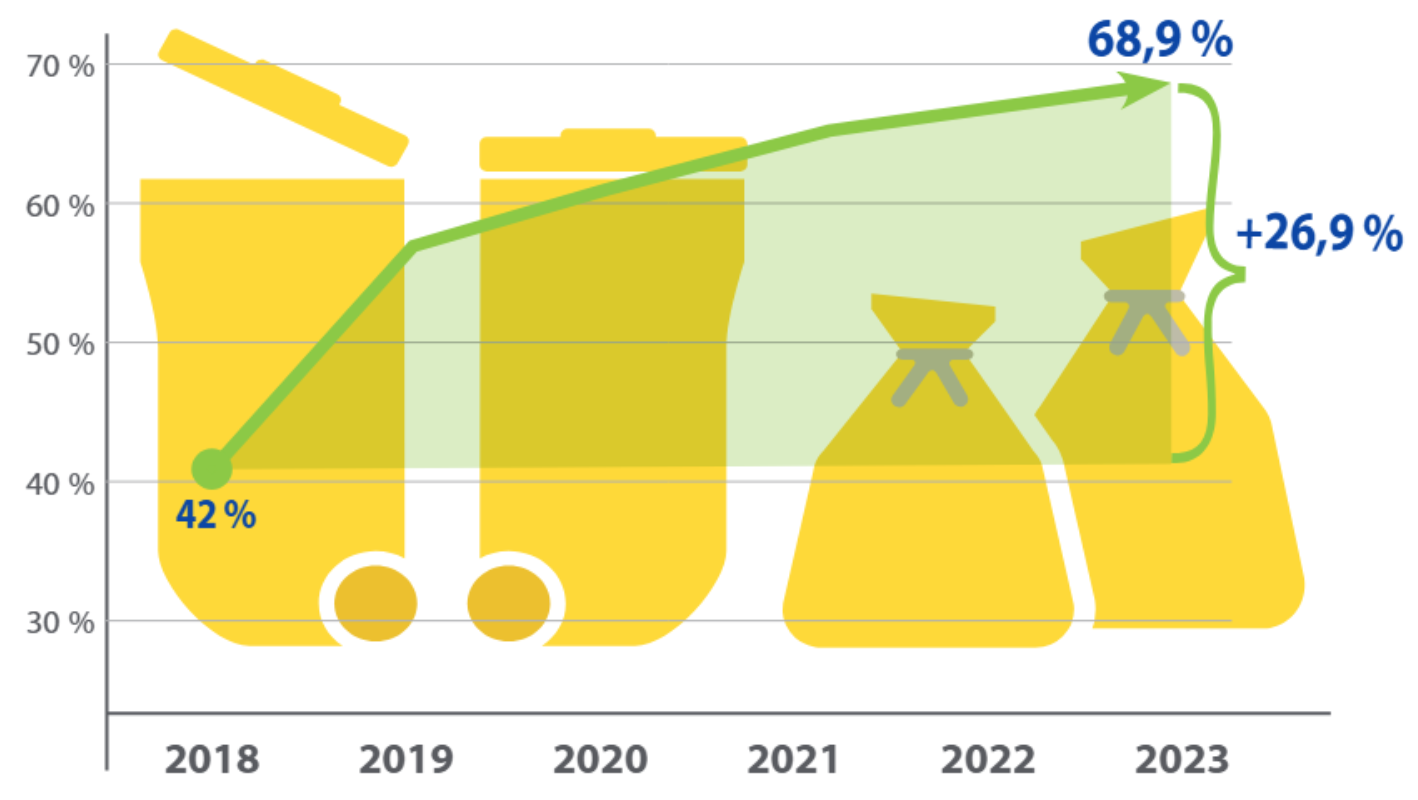
Germany has reached a significant milestone in plastic packaging recycling, with a material recycling rate of 68.9% recorded in 2023. This achievement, announced jointly by the Central Packaging Registry (ZSVR) and the German Environment Agency (UBA), reflects a remarkable 27 percentage-point increase since the introduction of the Packaging Act in 2018.
Dr Isabell Schmidt, Managing Director for Circular Economy at the German Association for Plastics Packaging (IK), emphasised the industry’s success in surpassing regulatory goals: “The legally mandated recycling target of 63% has been significantly exceeded once again. This achievement underlines the development of a thriving market for recycled plastic materials from packaging, representing a major leap forward for the circular economy.”
Four Out of Five Plastic Packages in Germany Are Highly Recyclable
The report also highlighted the critical role of recycling-compatible design in driving these outcomes. Today, 80% of consumer plastic packages in Germany are designed to be highly recyclable, enabling them to replace virgin plastics after processing. Despite a reduction in the overall packaging volume, the demand for recycled materials within the sector continues to grow, solidifying the packaging industry’s role as a dependable market for recycled materials even during periods of economic fluctuation.
“Our industry has led the way,” Dr. Schmidt noted. “Eighty per cent of plastics recycled in Germany already come from packaging. It’s now time for other sectors, such as construction and automotive, to adopt recycled materials on a larger scale.”
This milestone underscores Germany’s commitment to advancing the circular economy and positions plastic packaging as a key resource in sustainable recycling. The success of the “Yellow Bag” system serves as an example for other industries and countries aiming to increase their recycling rates and transition to a more circular economy.







